It's important to call and make an appointment
(847) 256-2501
Here is why:
We generally recommend scheduling checkups every six months. Depending on the circumstances of your child's oral health, we may recommend more frequent visits, as when they are in active Orthodontic treatment and need extra help keeping their teeth clean.
Why do baby teeth need special care?
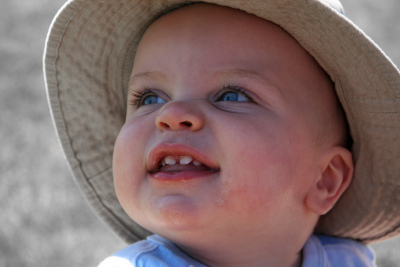 Although they don't last as long as permanent teeth, your child's first teeth play an important role in his development. While they're in place, these primary teeth help your child speak, smile, and chew properly.
They also hold space in the jaw for permanent teeth. If a child loses a tooth too early (due to damage or decay) nearby teeth may move into that space, which can result in crooked or misplaced permanent teeth. Also, your child's general health is affected by the oral health of the teeth and gums.
Although they don't last as long as permanent teeth, your child's first teeth play an important role in his development. While they're in place, these primary teeth help your child speak, smile, and chew properly.
They also hold space in the jaw for permanent teeth. If a child loses a tooth too early (due to damage or decay) nearby teeth may move into that space, which can result in crooked or misplaced permanent teeth. Also, your child's general health is affected by the oral health of the teeth and gums.
 Our entire team is dedicated to your child's health and in assisting to maintain that fantastic smile for many years. We look forward to getting to know you and your family. Contact our office and schedule an appointment.
Our entire team is dedicated to your child's health and in assisting to maintain that fantastic smile for many years. We look forward to getting to know you and your family. Contact our office and schedule an appointment.
Why our Office? We are specially trained to handle fears and anxiety, and putting your sweet child at ease during treatment.
(847) 256-2501
Common Procedures
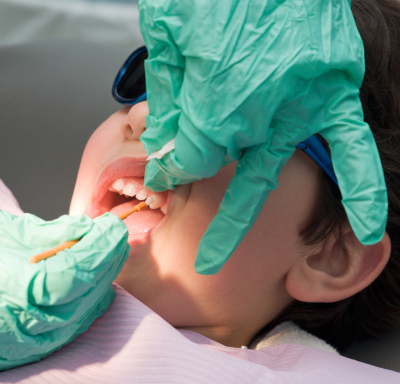 Fluoride:
Fluoride:Fluoride varnish - The varnish is painted directly onto the teeth with a small brush, much like a nail polish application. It is much easier for young children to tolerate than fluoride trays. The fluoride varnish remains on the tooth surfaces for four to six hours. This helps with maximal fluoride uptake and strengthens the tooth's surface making it more resistant to the decay process. Fluoride varnish also minimizes the risk of inadvertent fluoride ingestion.
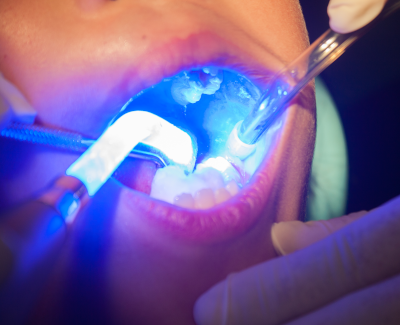 Sealants:
Sealants:Sealants cover the pits and fissures in teeth that are difficult to brush and therefore susceptible to decay. We recommend sealants as a safe, simple way to help your child avoid cavities in their permanent molars.
Sealants last from three to five years, but it is fairly common to see adults with sealants, still intact from their childhood. A dental sealant only provides protection when it is fully intact, so if your child's sealants come off, let your dentist know, and schedule an appointment for your childs teeth to be re-sealed.
(847) 256-2501
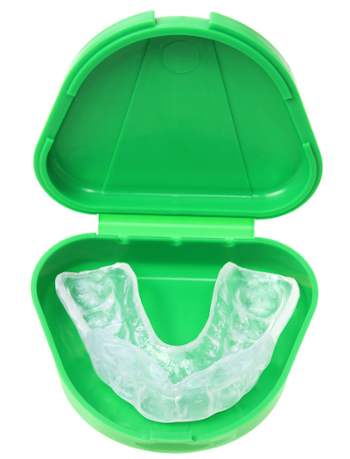 Mouthguards:
Mouthguards:Whether your child wears braces or not, protecting his or her smile while playing sports is essential. Mouthguards, help protect the teeth and gums from injury. If your child participates in any kind of full-contact sport, the American Dental Association recommends that he or she wear a mouthguard. Choosing the right mouthguard is essential. There are three basic types of mouthguards: the pre-made mouthguard, the “boil-and-bite” fitted mouthguard, and a custom-made mouthguard from the dentist.
When you choose a mouthguard, be sure to pick one that is tear-resistant, comfortable and well-fitted for your mouth, easy to keep clean, and does not prevent your child from breathing properly. Your dentist can show your child how to wear a mouthguard properly and how to choose the right mouthguard to protect his or her smile.
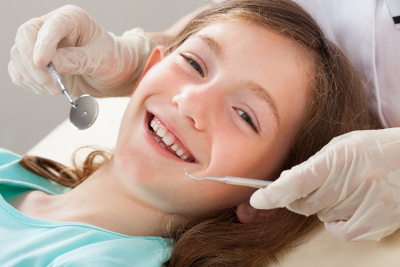 Bonding:
Bonding:Bonding is a conservative way to repair slightly chipped, discolored, or crooked teeth. During dental bonding, a white filling is placed onto your child's tooth to improve its appearance. The filling “bonds” with the tooth, and because it comes in a variety of tooth-colored shades, it closely matches the appearance of your child's natural teeth.
Bonding is less expensive than other cosmetic treatments and can usually be completed in one visit to our office. However, bonding can stain and is easier to break than other cosmetic treatments, such as porcelain veneers. If it does break or chip, tell your doctor. The bonding can generally be easily patched or repaired in one visit.
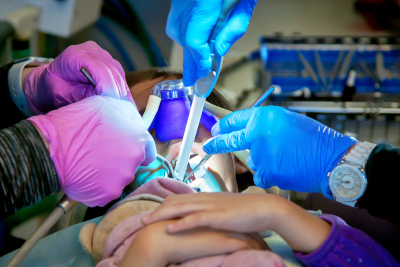 Nitrous Oxide:
Nitrous Oxide:Nitrous oxide, or laughing gas, is the most frequently used method for easing mild to moderate anxiety in children. Administered through a small plastic hose that fits over your child's nose, it is an effective way to calm anxiety. Your child will be asked to breathe through his or her nose and not through their mouth. As the gas begins to work, your child will become calm, although he or she will still be awake and able to talk with the dentist.
At the end of your child's appointment, he or she will resume breathing regular oxygen, and all the effects of nitrous oxide will disappear. As your child gets older and becomes more comfortable during dental visits, nitrous oxide may not be necessary.
(847) 256-2501

